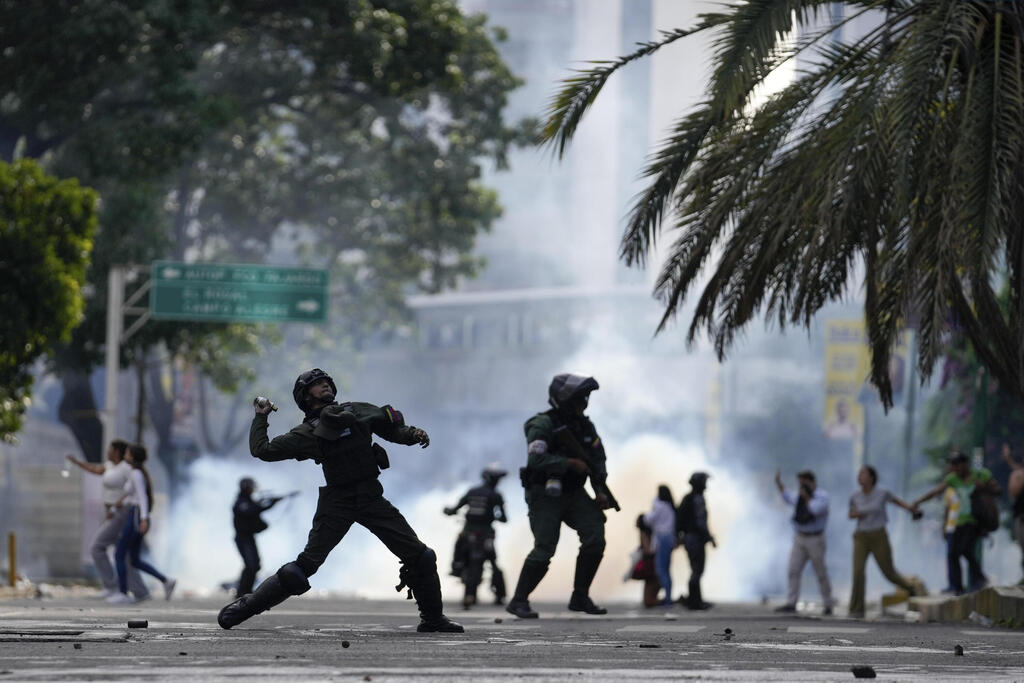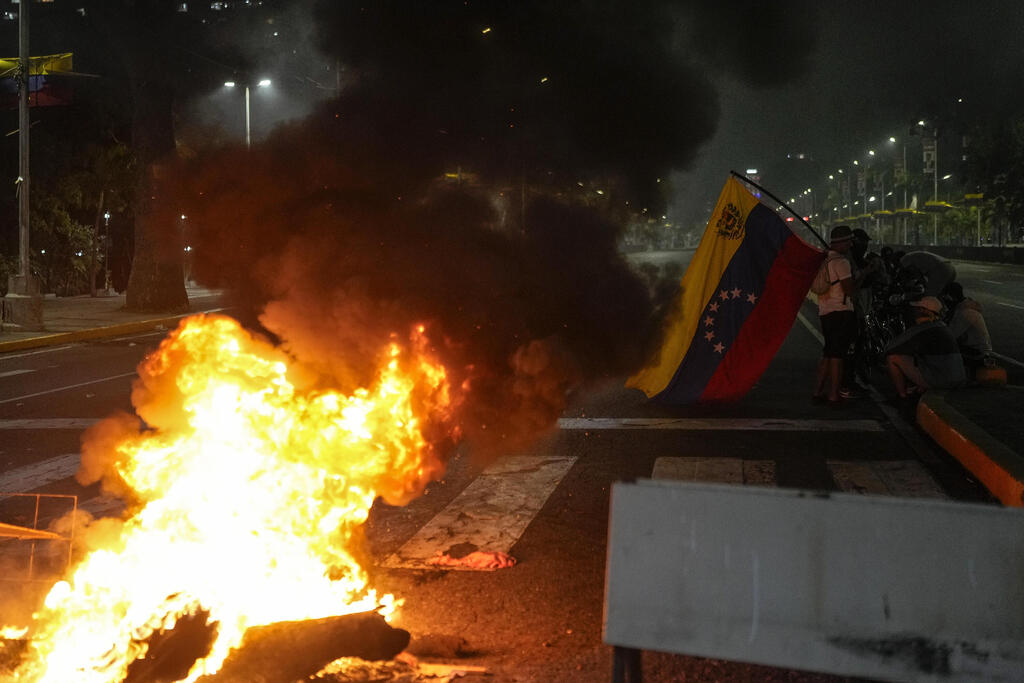Getting your Trinity Audio player ready...
Thousands of demonstrators protested in the streets of Caracas and across Venezuela against President Maduro's reelection. Protesters clashed with security forces, and a Hugo Chávez statue was toppled.
Venezuela's opposition leaders María Corina Machado, Edmundo González Urrutia, and Juan Guaidó claimed victory for González with over 70% of the votes, asserting they obtained tallies showing roughly 6.2 million votes, more than double Nicolas Maduro's 2.7 million votes.
Independent exit polls also suggested González's victory, contradicting the official results.
Venezuela's national electoral authority declared incumbent President Maduro the winner with 51.2% of the votes. The opposition, independent pollsters, and several countries, including the US, Brazil, and the European Union, deemed the official results implausible and called for transparency in the vote count, expressing doubts about potential "electoral manipulation."
Final vote tallies and tally sheets for the voting machines were not released.
The Kremlin urged Venezuela's political opposition to concede and congratulate Maduro on his presidential election win, criticizing external influences for instigating instability in Venezuela. Russia is a key ally of Maduro's socialist regime.
The international community, including the US, Brazil, the EU, and the Organization of American States (OAS), expressed concern over the election results, with some refusing to recognize Maduro's win and calling for full vote tabulation and transparency. Russia, China, and other countries congratulated Maduro on his win.
The Venezuelan government named Machado as a key suspect in an alleged plot to alter voting results through a cyberattack, accusing her and other opposition leaders of inciting violence and taking part in an international plot against Maduro's government.
Maduro dismissed the protests as an attempt at a coup d'etat, pledging to uphold the law.
The election was held amidst fears of fraud, political intimidation, and economic misery, with hyperinflation driving millions of Venezuelans to emigrate. Critics accused Maduro of authoritarianism, locking up critics, and harassing political rivals. Independent polls predicted the end of the populist "Chavismo" movement with his defeat.
Turnout dropped to 46% from 80% in previous elections, despite Maduro offering incentives, while Venezuela's bonds and those of state oil firm PDVSA plummeted further into distressed territory post-election.
This article was written in collaboration with Generative AI news company Alchemiq
Sources: The Guardian, Reuters, AP News, Axios, Bloomberg, CNN, BBC, Sky News, CBC, France 24, Times of India, Devdiscourse.



